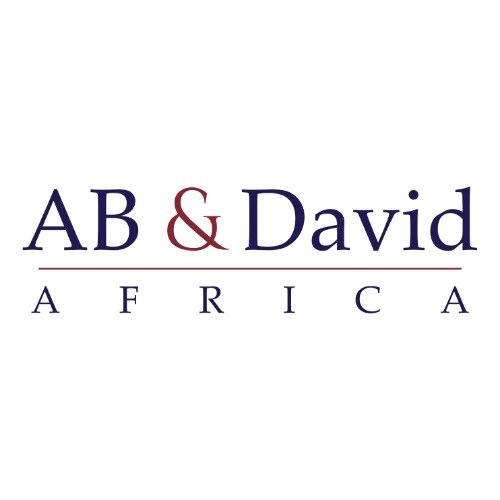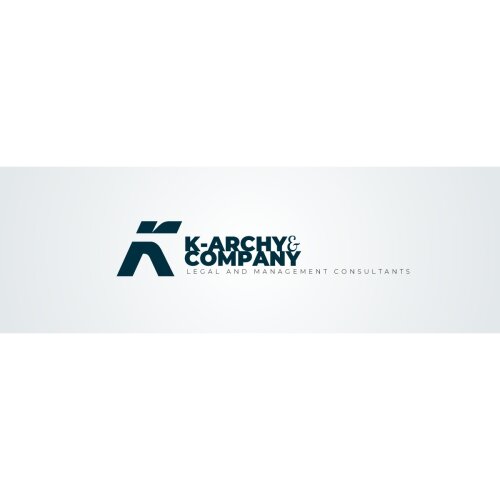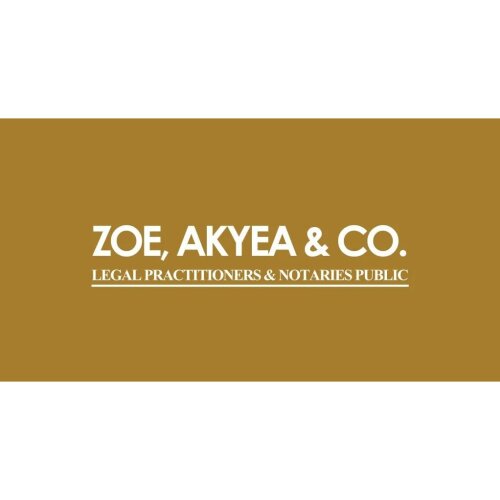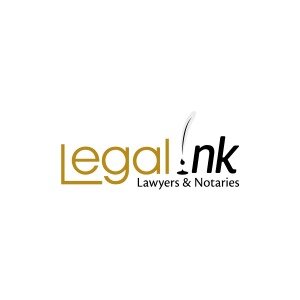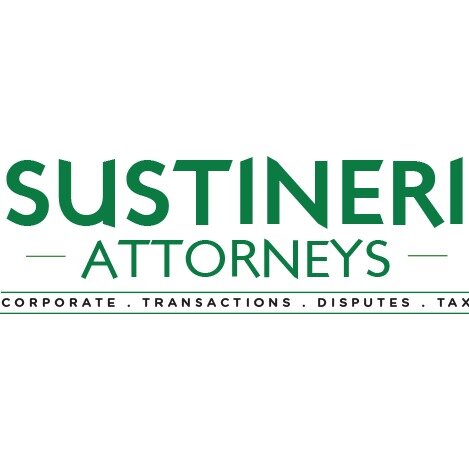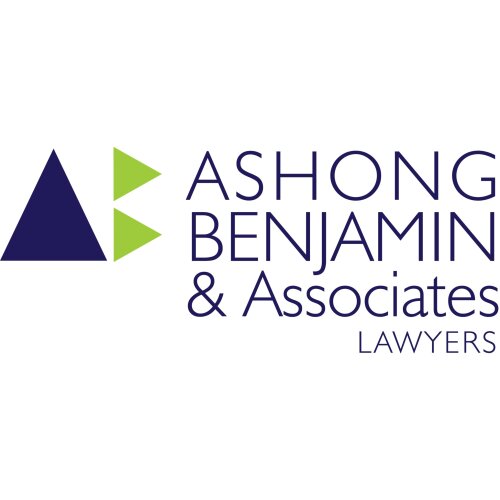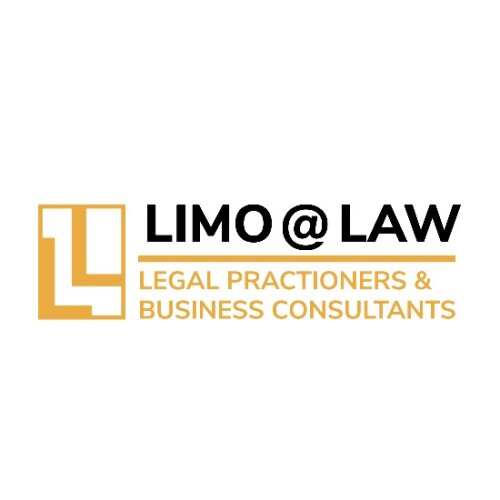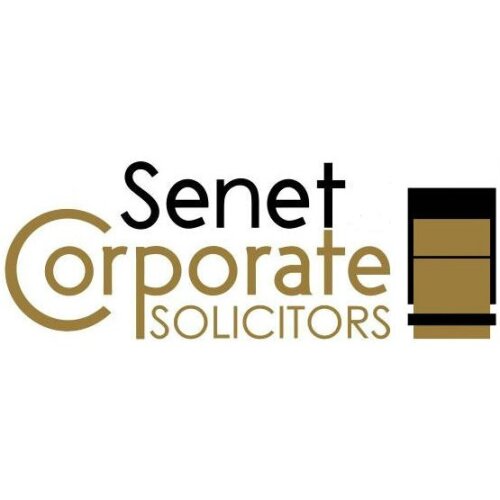Best Mining Law Lawyers in Accra
Share your needs with us, get contacted by law firms.
Free. Takes 2 min.
List of the best lawyers in Accra, Ghana
About Mining Law in Accra, Ghana
Mining law in Accra, Ghana, forms a crucial part of the regulatory landscape guiding the exploration, extraction, and commercialization of Ghana's mineral resources. Accra, as the nation's capital, houses key government ministries, regulatory bodies, and legal professionals focused on mining law compliance and dispute resolution. Ghana is endowed with significant mineral wealth, including gold, bauxite, manganese, and diamonds, and mining activities play a major role in the country's economy. The legal environment is primarily governed by the Minerals and Mining Act, 2006 (Act 703), along with related regulations and amendments designed to promote responsible mining, ensure environmental protection, manage land rights, and secure benefits for the host communities.
Why You May Need a Lawyer
Legal assistance in mining law is vital due to the complex and highly regulated nature of mining in Ghana. Common situations where individuals or companies may require a mining lawyer include:
- Applying for or renewing mining licenses and permits
- Negotiating mining lease agreements or joint ventures
- Regulatory compliance and navigating environmental standards
- Resolving land ownership or compensation disputes with local communities
- Handling cases of illegal mining or encroachment on concessions
- Managing disputes with government agencies or private entities
- Dealing with tax and royalty obligations
- Conducting due diligence for mergers, acquisitions, or investment in mining projects
- Responding to regulatory investigations or sanctions
A mining law specialist ensures compliance and reduces risk while helping safeguard your interests in Ghana's dynamic mining sector.
Local Laws Overview
Mining law in Accra, Ghana, is primarily governed by the Minerals and Mining Act, 2006 (Act 703) and its subsequent regulations. Key aspects of the legal framework include:
- Licensing Requirements: All mining activities require specific licenses or permits, including reconnaissance licenses, prospecting licenses, and mining leases, issued by the Minerals Commission.
- Government Participation: The Government of Ghana retains a carried interest (usually 10 percent) in all mining operations, ensuring state participation in the sector.
- Land Rights: Distinct processes are in place for acquiring surface rights and mineral rights, including compensation mechanisms for affected landowners and communities.
- Environmental Compliance: Mining operators must secure environmental permits from the Environmental Protection Agency (EPA) and comply with strict safeguards to minimize environmental impact.
- Community Relations: Mining laws require stakeholder engagement with affected communities and fair compensation for land acquisition or disruption of livelihoods.
- Local Content: Regulations encourage local content and the participation of Ghanaian businesses and professionals in mining operations.
- Taxation and Royalties: Mining operators are subject to royalties, corporate taxes, and other fiscal obligations set by law.
- Dispute Resolution: Legal disputes can be addressed through Ghana’s courts or, in some cases, through arbitration or other alternative dispute resolution mechanisms.
Understanding these and other legal requirements is essential for anyone considering mining activities in or near Accra, Ghana.
Frequently Asked Questions
What is required to obtain a mining license in Ghana?
To obtain a mining license in Ghana, you must apply to the Minerals Commission. The process involves meeting eligibility requirements, submitting a detailed application, conducting environmental assessments, and, in many cases, demonstrating financial and technical capacity to carry out mining operations.
Can a foreigner or foreign company engage in mining in Ghana?
Yes, foreigners and foreign companies can engage in mining in Ghana, provided they comply with Ghanaian laws regarding equity participation, local content, and obtain the necessary permits and approvals from the relevant authorities.
How are land and mineral rights managed?
Land ownership and mineral rights are separate. The government owns all mineral resources, and individuals or companies must obtain rights from the government. Compensation is required for surface rights from landholders if mining activities affect their land.
What are the environmental responsibilities of mining companies?
Mining companies must secure environmental permits, conduct environmental impact assessments, implement environmental management plans, and comply with EPA regulations to minimize pollution and rehabilitate land after mining operations.
What taxes and royalties are mining companies required to pay?
Mining companies in Ghana are subject to corporate tax, royalties (typically paid as a percentage of gross revenue), and other statutory fees as outlined in the Minerals and Mining Act and the Fiscal Regime for Mining Operations.
How does the government participate in mining projects?
The government usually takes a carried interest (often 10 percent) in all mining leases, allowing it to share in profits and ensure oversight over activities.
How are disputes between mining companies and communities resolved?
Most disputes are settled through negotiation or mediation, but unresolved conflicts may be taken to court or dealt with through alternative dispute resolution as stipulated by law.
What are the consequences of illegal mining (galamsey)?
Illegal mining is strictly prohibited and punishable by severe penalties, including fines, imprisonment, and confiscation of equipment. The government has implemented measures to combat illegal mining and protect the environment.
What role does local content play in mining operations?
Mining laws and regulations promote the participation of Ghanaian citizens and companies in the mining sector. Operators are required to prioritize local employment, sourcing, and capacity building as part of their licenses.
Can mining licenses be transferred or assigned?
Mining licenses may be transferred or assigned, but only with the approval of the sector minister and in accordance with regulatory procedures to ensure transparency and compliance.
Additional Resources
For those seeking more information or assistance regarding mining law in Accra, Ghana, the following resources and institutions are helpful:
- Minerals Commission: The primary regulatory body for licensing and monitoring mining activities.
- Environmental Protection Agency (EPA): Responsible for environmental regulation and permitting.
- Ministry of Lands and Natural Resources: Oversees mineral policy and strategic direction of the sector.
- Chamber of Mines: Represents the interests of mining companies operating in Ghana.
- Ghana Bar Association: For referrals to qualified mining law specialists.
- Legal Aid Commission: Provides legal aid and advice for those who qualify.
Next Steps
If you need legal assistance in mining law in Accra, Ghana, follow these steps:
- Gather relevant documents, contracts, or correspondence relating to your mining issue.
- Make a clear summary of your objectives or concerns, including any deadlines or ongoing negotiations.
- Identify and contact a lawyer with experience in Ghanaian mining law. You can seek referrals from the Ghana Bar Association, the Legal Aid Commission, or industry associations.
- Schedule a consultation to discuss your case, understand your legal position, and obtain practical advice on the best way forward.
- Act promptly to ensure your rights are protected and to facilitate smooth regulatory compliance or dispute resolution.
Legal intricacies in mining law require specialized expertise, so do not hesitate to seek tailored advice from a qualified professional familiar with local laws and business practices in Accra, Ghana.
Lawzana helps you find the best lawyers and law firms in Accra through a curated and pre-screened list of qualified legal professionals. Our platform offers rankings and detailed profiles of attorneys and law firms, allowing you to compare based on practice areas, including Mining Law, experience, and client feedback.
Each profile includes a description of the firm's areas of practice, client reviews, team members and partners, year of establishment, spoken languages, office locations, contact information, social media presence, and any published articles or resources. Most firms on our platform speak English and are experienced in both local and international legal matters.
Get a quote from top-rated law firms in Accra, Ghana — quickly, securely, and without unnecessary hassle.
Disclaimer:
The information provided on this page is for general informational purposes only and does not constitute legal advice. While we strive to ensure the accuracy and relevance of the content, legal information may change over time, and interpretations of the law can vary. You should always consult with a qualified legal professional for advice specific to your situation.
We disclaim all liability for actions taken or not taken based on the content of this page. If you believe any information is incorrect or outdated, please contact us, and we will review and update it where appropriate.





